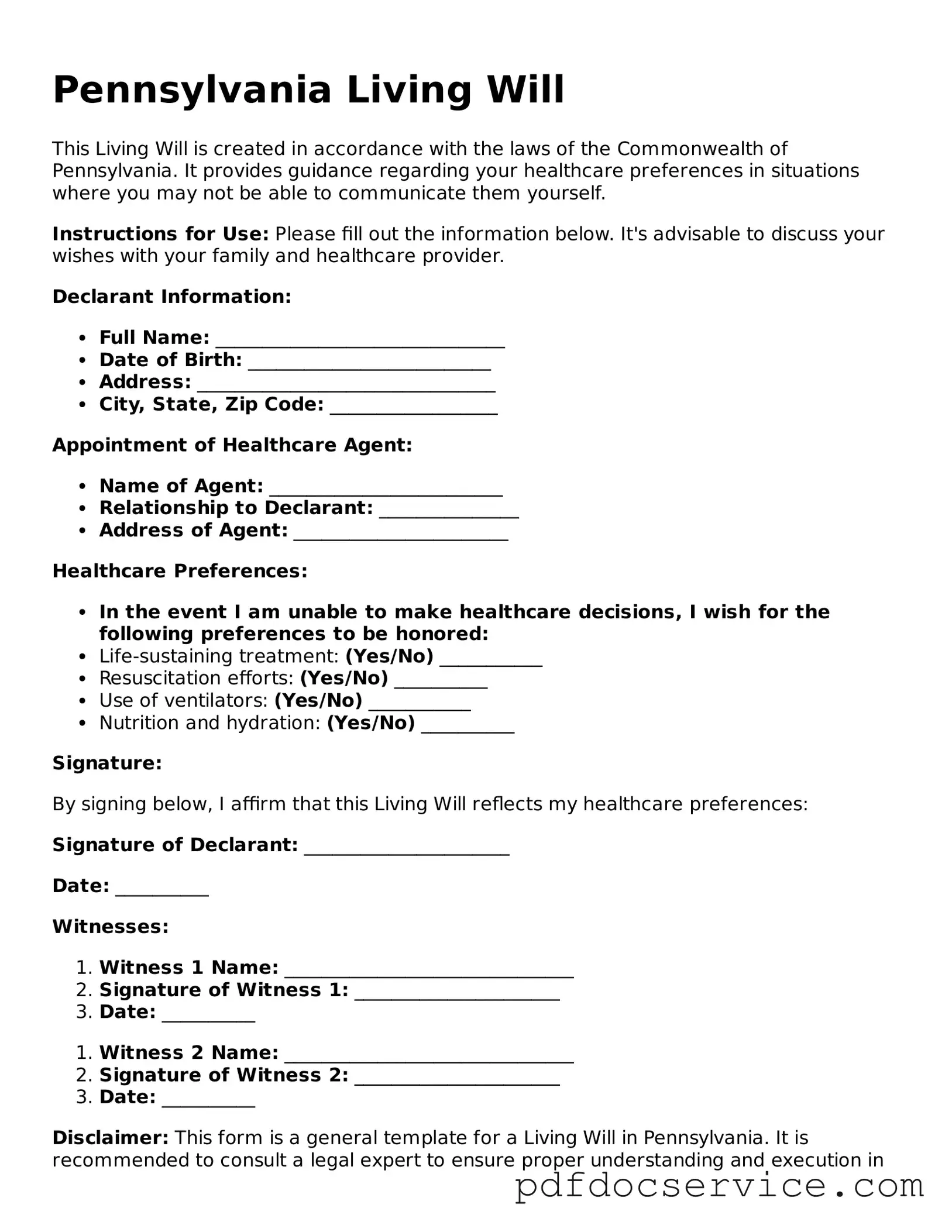What is a Pennsylvania Living Will?
A Pennsylvania Living Will is a legal document that allows individuals to express their wishes regarding medical treatment in the event they become incapacitated and unable to communicate their preferences. This document specifically addresses end-of-life decisions, such as whether to continue or discontinue life-sustaining treatment.
Who should create a Living Will?
Any adult in Pennsylvania can create a Living Will. It is particularly important for individuals with serious health conditions, those approaching advanced age, or anyone who wants to ensure their medical preferences are known and respected. Having a Living Will can provide peace of mind, knowing that your wishes will be honored if you cannot speak for yourself.
What should be included in a Living Will?
When creating a Living Will, it is essential to consider the following:
-
Specific medical treatments you wish to receive or refuse, such as resuscitation, mechanical ventilation, or tube feeding.
-
Your preferences regarding pain management and comfort care.
-
Any other personal wishes regarding your end-of-life care.
Be clear and specific in your language to avoid ambiguity. This will help healthcare providers and your loved ones understand your intentions.
How do I create a Living Will in Pennsylvania?
To create a Living Will in Pennsylvania, follow these steps:
-
Consider your wishes regarding medical treatment and end-of-life care.
-
Draft the Living Will, ensuring it includes your preferences clearly.
-
Sign the document in the presence of two witnesses, who must be at least 18 years old and not related to you or entitled to any part of your estate.
-
Keep the original document in a safe place and provide copies to your healthcare providers and family members.
Can I change or revoke my Living Will?
Yes, you can change or revoke your Living Will at any time as long as you are competent to do so. To make changes, simply create a new Living Will that clearly states your updated preferences. Ensure that you inform your healthcare providers and loved ones about the changes. Revocation can be done verbally or in writing, but it is advisable to do so in writing to avoid any confusion.
Is a Living Will the same as a Power of Attorney for Healthcare?
No, a Living Will and a Power of Attorney for Healthcare are not the same, although they serve related purposes. A Living Will outlines your specific wishes regarding medical treatment, while a Power of Attorney for Healthcare designates an individual to make medical decisions on your behalf if you are unable to do so. It is often beneficial to have both documents in place to ensure comprehensive planning for your healthcare preferences.

